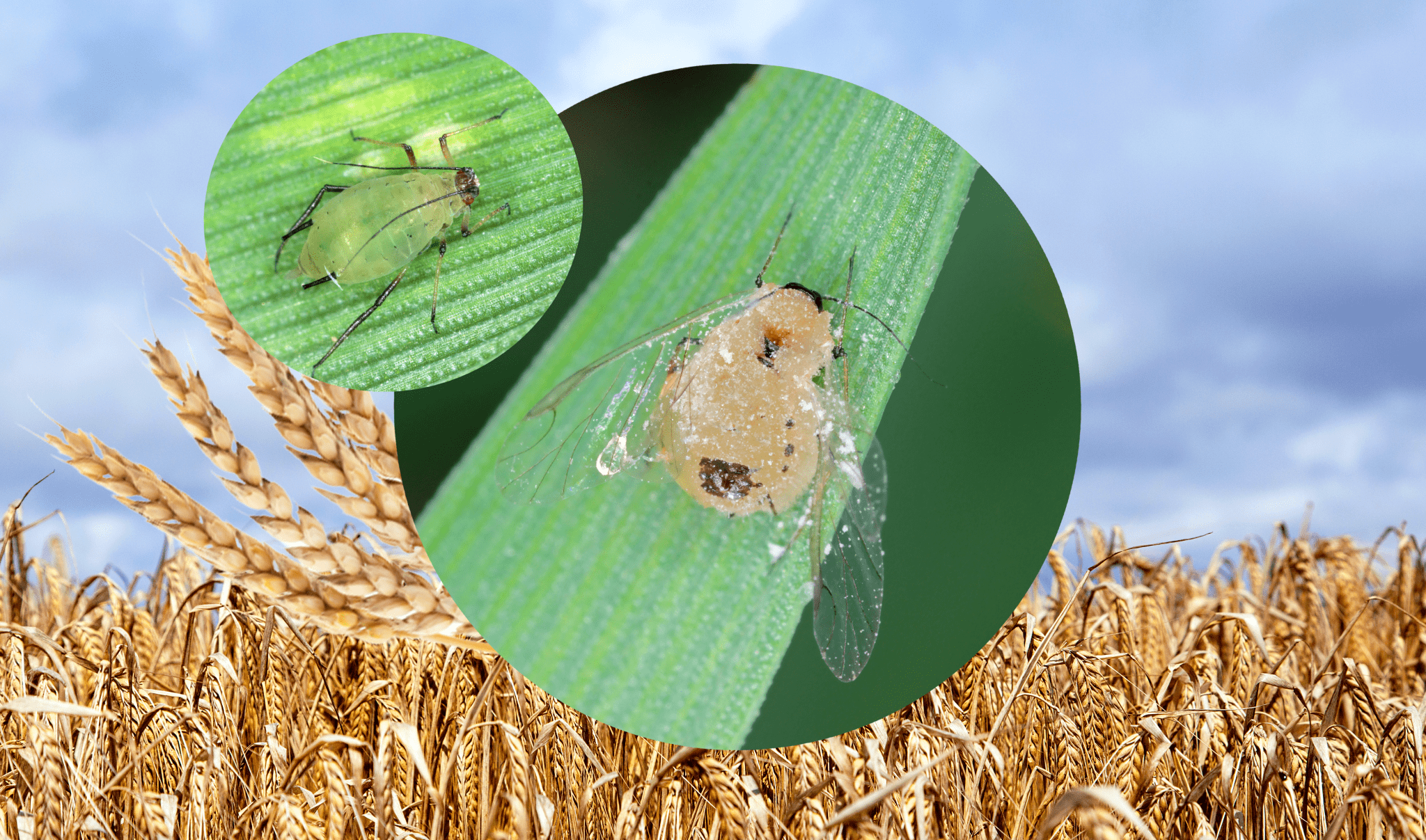It is well established that wheat is part of the ‘big-four’ staple crops worldwide, alongside maize, rice, and potatoes, and as such has a high commercial significance. In the UK, wheat production is heavily impacted by insect pests and fungal diseases.
Cereal aphids such as the bird cherry-oat and the English grain are responsible for high yield losses in wheat due to crop damage and the transmission of viral agents such as barley yellow dwarf virus and cereal yellow dwarf virus.
In an effort to combat such challenges, this new collaborative project aims to revolutionise the British cereal farming landscape through the development of a cutting-edge biopesticide. This novel and ground-breaking approach involves harnessing the power of native fungi to provide protection against both insect pests and diseases.
Dr Steve Edgington, Biopesticides Team Leader at CABI, said: “It’s a pleasure to be involved in this project, the UK has such a dearth of biopesticides for use in arable production that we urgently need this type of research.
“Particularly on the beneficial microbials, such as fungi, they can be so useful to protect plants from pests and diseases but can do it in harmony with the local biodiversity, plus they can give the soils a bit of a breather, a chance to regain some health. Let’s see where we go with it, but yes absolutely crucial we keep this R&D up.”
The two-year feasibility study is being led by FA Bio, in partnership with C.A.B. INTERNATIONAL (CABI) and Crop Health and Protection (CHAP).
The study would provide a game-changing solution for farmers, enabling a considerable cost reduction associated with pest and disease management whilst minimising crop loss and reliance on synthetic chemical control agents.
Through glasshouse trials, performance of selected fungal isolates against two cereal aphid species will be assessed, while subsequent field trials will focus on determining efficacy against both insect and fungal pests. By leveraging existing data from FA Bio’s prior research and data, this project is set to accelerate the lengthy process of biopesticide commercialisation in the UK.
Angela de Manzanos Guinot, CEO and Co-Founder of FA Bio said: “FA Bio is excited to be a part of this collaborative project and to work with CABI and CHAP to deliver biopesticides that add value to growers. By working together, we can create superior microbial products that have the potential to revolutionise regenerative agriculture and tackle the main wheat fungal pathogens and pests with just one product.
“FA Bio is leading the way in discovering unique soil microbes to help develop sustainable farming solutions that can protect our natural ecosystems. With more than eight years of research and data, we can really help advance the development and commercialisation of a new biopesticide targeting the most important global crop, wheat.”
Dr Victoria Nash-Woolley, Research Associate at CHAP, added: “Cereal aphids have a high economic impact on wheat cultivation in the UK, one that could amount to £136 million if left unchecked.
“This project directly addresses this pressing challenge for farmers by aiming to develop a sustainable pest and disease control for wheat. Through the consortium’s collaborative efforts, we are committed to advance sustainable farming practices and support the expansion of the current crop protection toolbox.”
The project is funded by Defra through the Farming Innovation Programme (FIP) and delivered via Innovate UK.
For more information about this project, contact CHAP at enquiries@chap-solutions.co.uk












